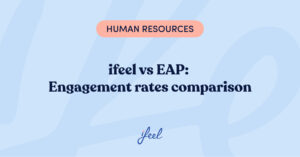The need to support working parents and boost employee retention has become a critical strategy in human resource management. With increasing demands on employees’ time and energy, it is imperative for organisations, particularly those with a large workforce, to implement strategies that accommodate the unique challenges faced by working parents. This comprehensive approach not only enhances the well-being of employees but also fortifies a company’s competitive edge through increased loyalty and reduced turnover.
Understanding the challenges faced by working parents
Working parents are often caught in a balancing act, trying to efficiently manage both professional responsibilities and family commitments. This dual role can lead to a range of challenges that impact their personal well-being and work performance. Here’s a detailed look at the major challenges faced by working parents:
| Challenge | Description |
|---|---|
| Time management | Balancing work schedules with family obligations, often leading to stress and overcommitment. |
| Childcare arrangements | Finding reliable and affordable childcare, which can be a significant source of stress. |
| Financial pressure | Managing the costs associated with raising children, including education and extracurricular activities. |
| Career advancement concerns | Limited opportunities for career progression due to perceived or actual restrictions from family commitments. |
| Work-life balance | Struggling to find time for personal interests and self-care amidst work and family responsibilities. |
| Health and well-being | Increased risk of stress-related health issues due to constant pressure from dual responsibilities. |
| Employer support | Lack of adequate support from employers, such as flexible working hours or parental leave policies. |
| Guilt and parental expectations | Feeling guilty about time not spent with family or stress from societal expectations of parenting. |
Questions for leaders:
- How does our current company culture support or hinder working parents?
- Are there any gaps in our policies that could lead to higher turnover among working parents?
- How can we measure the success of our initiatives aimed at supporting working parents?
Addressing these challenges is crucial for organisations aiming to support working parents and boost employee retention. Implementing supportive measures not only alleviates these pressures but also enhances the overall productivity and satisfaction of working parents within the workforce.
Key strategies to support working parents and boost employee retention
To effectively support working parents and boost employee retention, companies must adopt a comprehensive approach that incorporates flexibility, support, and development opportunities. The following key strategies provide a roadmap for organisations striving to create a more inclusive and supportive workplace.
1. Flexible work arrangements: Offering flexible work schedules or remote work options can significantly ease the burden on working parents. By allowing employees to manage their time around family commitments, companies can enhance job satisfaction and reduce stress levels. A survey by KPMG shows that 50% of working parents are seeking more flexible work schedules.
2. Childcare support: Providing on-site childcare facilities or benefits for childcare expenses can relieve financial stress for working parents. This not only enhances employee loyalty but also reduces absenteeism, effectively contributing to support working parents and boost employee retention.
3. Parental leave policies: Extending generous parental leave policies that go beyond statutory requirements demonstrates a company’s commitment to family values and supports employee retention.
4. Employee Assistance Programs (EAPs): Implementing programs that offer counselling and support can help working parents manage stress and improve their overall well-being, further strengthening efforts to support working parents.
5. Career development opportunities: Ensuring that working parents have access to career advancement resources ensures that they remain engaged and motivated within the organisation.

Extended benefits of supporting working parents
Investing in the support working parents and boost employee retention yields substantial returns for organisations. Here’s a detailed look at the myriad benefits that can be achieved:
| Benefit | Description |
|---|---|
| Increased employee loyalty | Employees who feel supported are more likely to remain with the company long-term. |
| Enhanced job satisfaction | Providing resources that ease work-life balance boosts morale and job satisfaction. |
| Reduced turnover costs | Lower turnover rates mean reduced costs related to recruitment and training new hires. |
| Improved productivity | Employees who are less stressed and happier are more productive and engaged. |
| Diverse talent ttraction | Family-friendly policies attract a wider range of candidates, enhancing organisational diversity. |
| Positive employer branding | Companies known for supporting working parents are viewed more favourably in the job market. |
| Healthier workplace culture | Supporting working parents fosters a more inclusive and understanding workplace environment. |
International perspectives on supporting working parents
The approach to support working parents and boost employee retention varies worldwide, reflecting different cultural and legislative contexts. In Sweden, for example, parents are entitled to 480 days of parental leave, which can be shared between both parents. This policy not only supports gender equality but also enhances family well-being and reduces workforce attrition. In contrast, the United States offers no statutory paid parental leave, which places a heavier burden on employers to create supportive environments for working parents.
In the UK, flexible working arrangements and shared parental leave have been increasingly adopted, aligning with European trends towards greater support for working parents. These policies are crucial in maintaining the UK’s competitiveness in attracting and retaining top talent.
Supporting working parents: A global perspective
| Country | Key Policies | Impact on Retention |
|---|---|---|
| Sweden | 480 days of parental leave shared | High retention, gender equality |
| UK | Flexible working, shared parental leave | Improved employee satisfaction |
| US | No statutory paid leave, varied company policies | Employer-driven retention strategies |

Recommendations for HR leaders
1. Conduct needs assessments: Regularly survey working parents to understand their unique challenges and needs within the organisation.
2. Develop comprehensive policies: Ensure that HR policies are inclusive of all types of families and reflect the diverse needs of working parents, aiding in efforts to support working parents and boost employee retention.
3. Foster a supportive culture: Encourage open communication and provide platforms for working parents to share their experiences and suggestions.
4. Monitor and evaluate: Continuously monitor the effectiveness of support initiatives and make necessary adjustments based on feedback and performance metrics.
Questions for decision makers
If you’re not sure where to begin, start by asking yourself these key questions to support working parents and boost employee retention:
- What specific needs do working parents in our organisation have that are currently unmet?
- How can we ensure that our policies are equitable and inclusive for all employees?
- In what ways can we measure the impact of our support programs on employee retention and satisfaction?
A checklist for HR managers and decision-makers in enterprises
- [ ] Review and enhance flexible work policies to support working parents and boost employee retention.
- [ ] Evaluate the feasibility of on-site childcare or partnerships with local childcare providers.
- [ ] Assess parental leave policies against industry standards.
- [ ] Develop and promote employee assistance programs focused on family and life balance.
- [ ] Identify career development pathways that accommodate diverse family structures.

The Leadership Lens🔎
From a leadership perspective, the initiative to support working parents and boost employee retention is not merely a perk but a strategic initiative that impacts company culture and performance. Leaders should actively promote a culture of inclusivity where the needs of working parents are understood and accommodated. This involves regular dialogue with employees to understand their needs and adapting organisational policies accordingly.
Mental health: one of the biggest business challenges of our time
At ifeel, we understand that supporting working parents is not only essential for employee well-being but also represents a strategic investment in a company’s long-term success. For HR leaders and decision-makers, comprehending the importance of tailored support solutions is vital to navigating the challenges of an evolving workforce.
To help in this process, our clinical team provides leading companies in their sector with a dynamic, scalable and fully personalised solution, powered by AI. We have a strategy and approach based on key data to help organisations with a global presence address one of the biggest business challenges of our time: mental health at work.
This solution offers employees a mental health care service structured at different levels depending on their needs at any given time. Discover our Resources section where you will find different materials, such as webinars, podcasts, guides for human resources on current topics and interviews with leaders of large organisations.
Data-driven methodology
Our mental health solution for enterprises employs evidence-based practices and innovative methods, backed by the latest research and a network of over 600 mental health professionals. Would you like to know more about our Clinical Research Department? Don’t forget to visit this section to stay informed about the latest studies and research in mental health in corporate environments.
We hope you found this article on how to support working parents and boost employee retention interesting.
If you would like more information about the ROI of our bespoke mental health solution for enterprises, simply request it here and our team will make a calculation adapted to the specific characteristics of your enterprise.







